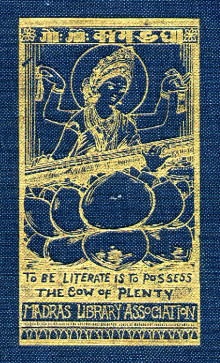Some recent links that bear on books and the materiality of communication.
Can reading fiction literally change your mind? [tl;dr – probably not] | Gregory Curry http://bitly.com/2b1M0mU
AN EPIDEMIOLOGY OF REPRESENTATIONS | Dan Sperber at Edge http://bitly.com/2aIyZPP
“Just as the human mind is not a blank slate on which culture would somehow imprint its content, the communication process is not a xerox machine copying contents from one mind to another…”
Cloudy With a Chance of Dystopia: Review of Tung-Hui Hu, “A Prehistory of the Cloud” @LAReviewofBooks http://bitly.com/2aUuaEy
“…the cloud is defined above all by its capacity to hide the material cost of its infrastructure behind a facade of individual user freedom and flexibility. In Hu’s analysis, the cloud traverses the gap between material and immaterial by performing a sort of rhetorical virtualization, “turning real things into logical objects.” “
“The Book: A Cover-to-Cover Exploration of the Most Powerful Object of Our Time” by Keith Houston http://bitly.com/2bFdGPn
A popular treatment that is getting fine reviews and promises to be an exemplar of its subject.
Review: Sybille Krämer, Medium, Messenger, Transmission: An Approach to Media Philosophy (2015) http://bitly.com/2bc6ZWb
Contrasts two approaches to communication: the postal and the erotic. Krämer’s book aims to rehabilitate the postal. In the postal model, a material medium is essential and “bridges the distance of difference without annihilating it”; according to the reviewer, Krämer relies heavily on the work of John Durham Peters in developing this notion. In the erotic, the medium is on the periphery, giving way to “the unmediated coming together of individuals” in community; Jürgen Habermas is “a sort of shadow boxing opponent” in defense of the erotic. The table of contents, translator’s introduction, and two opening sections of the book are available as a PDF (http://bitly.com/2bc8N1D). Also keep an eye out for an open access full text, which will be included in the latest release from KU Knowledge Unlatched (http://bitly.com/2bc8N1D). [At first glance, this appears to be a more sophisticated argument for the radical individualist “toolmaker’s” model proposed by Michael Reddy in The Conduit Metaphor (http://bit.ly/2xmh3lx)]






Add your comments